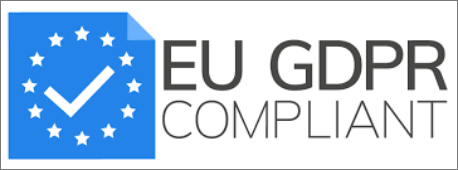|
<< Click to Display Table of Contents >> GDPR |
  
|
|
<< Click to Display Table of Contents >> GDPR |
  
|

Bosch is committed to compliance with the General Data Protection Regulation (GDPR) when it takes effect on May 25, 2018 (for more details: http://www.eugdpr.org/).
As a result, Bosch websites include features to support compliance with the GDPR.
Under the GDPR, breach notification will become mandatory in all member states where a data breach is likely to “result in a risk for the rights and freedoms of individuals”. This must be done within 72 hours of first having become aware of the breach. Data processors will also be required to notify their customers, the controllers, “without undue delay” after first becoming aware of a data breach.
Part of the expanded rights of data subjects outlined by the GDPR is the right for data subjects to obtain from the data controller confirmation as to whether or not personal data concerning them is being processed, where and for what purpose. Further, the controller shall provide a copy of the personal data, free of charge, in an electronic format. This change is a dramatic shift to data transparency and empowerment of data subjects.
Also known as Data Erasure, the right to be forgotten entitles the data subject to have the data controller erase his/her personal data, cease further dissemination of the data, and potentially have third parties halt processing of the data. The conditions for erasure, as outlined in article 17, include the data no longer being relevant to original purposes for processing, or a data subjects withdrawing consent. It should also be noted that this right requires controllers to compare the subjects' rights to "the public interest in the availability of the data" when considering such requests.
GDPR introduces data portability - the right for a data subject to receive the personal data concerning them, which they have previously provided in a 'commonly used and machine readable format' and have the right to transmit that data to another controller.
Privacy by design as a concept has existed for years now, but it is only just becoming part of a legal requirement with the GDPR. At it’s core, privacy by design calls for the inclusion of data protection from the onset of the designing of systems, rather than an addition. More specifically - 'The controller shall..implement appropriate technical and organisational measures..in an effective way.. in order to meet the requirements of this Regulation and protect the rights of data subjects'. Article 23 calls for controllers to hold and process only the data absolutely necessary for the completion of its duties (data minimisation), as well as limiting the access to personal data to those needing to act out the processing.
Currently, controllers are required to notify their data processing activities with local DPAs, which, for multinationals, can be a bureaucratic nightmare with most Member States having different notification requirements. Under GDPR it will not be necessary to submit notifications / registrations to each local DPA of data processing activities, nor will it be a requirement to notify / obtain approval for transfers based on the Model Contract Clauses (MCCs). Instead, there will be internal record keeping requirements, as further explained below, and DPO appointment will be mandatory only for those controllers and processors whose core activities consist of processing operations which require regular and systematic monitoring of data subjects on a large scale or of special categories of data or data relating to criminal convictions and offences. Importantly, the DPO:
•Must be appointed on the basis of professional qualities and, in particular, expert knowledge on data protection law and practices
•May be a staff member or an external service provider
•Contact details must be provided to the relevant DPA
•Must be provided with appropriate resources to carry out their tasks and maintain their expert knowledge
•Must report directly to the highest level of management
•Must not carry out any other tasks that could results in a conflict of interest